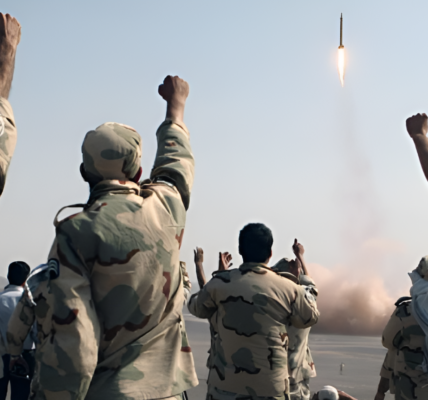
In late 2022, the refrigerated carrier vessel Sun Flower 7 set off from its homeport, claiming a route to the Federated States of Micronesia to rendezvous with tuna-fishing vessels. However, fisheries surveillance officers in the Marshall Islands detected suspicious behavior—suggesting the vessel was operating illegally within the exclusive economic zone of Kiribati. After several maneuvers across the Pacific, the vessel was en route to Thailand with 4,000 metric tons of tuna. Thanks to swift international cooperation, the vessel was denied entry into Thailand and fined $150,000 by its flag state, South Korea, marking a rare success in the fight against illegal, unreported, and unregulated (IUU) fishing.
Illegal fishing devastates coastal economies and ecosystems, with estimates suggesting that one in five fish caught globally is a product of such illicit practices. As international maritime services increase their efforts to combat this crisis, they can draw valuable lessons from the ongoing war on drugs, which has shaped how law enforcement handles maritime smuggling for over five decades. The key takeaways: enhanced intelligence sharing, focusing on associated crimes, and broadening civil society engagement.
The Maritime War on Drugs: Three Acts of Progress
The U.S. Coast Guard and Navy have been tackling narcotics smuggling in the maritime space since the 1970s, initially targeting large vessels smuggling marijuana and cocaine into North America. This effort can be divided into three acts: unilateral action, bilateral cooperation, and global partnerships.
In the 1980s, as drug smuggling intensified, the U.S. focused on unilateral operations in areas like the Caribbean Sea and Pacific Ocean. But by the 1990s, increasing violence from drug cartels forced a shift toward bilateral cooperation with Latin American and Caribbean nations. Over 30 agreements were signed, enabling joint operations and coordinated efforts to counter drug trafficking at sea.
Post-9/11, as the “Global War on Terror” consumed resources, global cooperation became more crucial. By embedding foreign liaison officers and engaging international partners, the U.S. expanded its reach, with at least 60% of maritime interdictions now carried out by foreign partners. Despite critiques of the war on drugs, its success lies in fostering trust, training partners, and creating a system where illicit activities are tracked, interdicted, and prosecuted, contributing to future interdiction successes.
The same principles applied to drug interdiction can be adopted for tackling IUU fishing, a problem of equal urgency. The world’s oceans are already overwhelmed by predatory fishing practices, and there is no time for a slow shift toward a “whole of government” approach. Global partnerships must be forged now to combat illegal fishing effectively.
Key Measures to Combat Illegal Fishing
To match the success of maritime counternarcotics efforts, three core strategies can be adopted in the fight against illegal fishing: enhancing intelligence sharing, focusing on associated crimes, and broadening engagement with civil society.
1. Intelligence and Information Sharing
Effective intelligence and information sharing are critical to fighting illegal fishing. In the counternarcotics war, decades of training and trust-building between partners have facilitated timely information exchange. In contrast, illegal fishing lacks the same legal complexity, allowing for more seamless intelligence sharing across nations.
The success of maritime domain awareness initiatives in tracking illicit activity can be leveraged to develop broader bilateral and multilateral agreements focused on combating all forms of maritime crime, including illegal fishing. These agreements should expand cooperation to new, non-traditional partners, beyond the usual law enforcement agencies, and include actors in the fishing industry, environmental NGOs, and regional authorities.
2. Addressing Associated Crimes
IUU fishing is rarely a standalone crime. It is often linked to labor abuses, corruption, money laundering, human trafficking, and environmental damage. Tackling these associated crimes offers a practical pathway for disrupting illicit fishing networks. Just as narcotics interdiction has relied on charges like tax evasion or money laundering to prosecute drug traffickers, the same tools can be used to target the financial networks behind illegal fishing.
For example, in 2022, the U.S. Department of Justice sanctioned two major Chinese companies, Pingtang Marine Enterprise and Dalian Ocean Fishing, for human rights abuses and illegal fishing. Pingtang was even delisted from the NASDAQ in the aftermath. Such actions send a strong signal and generate further interest in prosecuting connected crimes, potentially strangling the financial lifeblood of IUU fishing operations.
3. Engaging Civil Society
Unlike the war on drugs, which is primarily a government-driven effort, civil society plays a crucial role in combating illegal fishing. NGOs, from local grassroots organizations to global environmental groups, help push for policy reforms, monitor fishing activities, and sometimes directly intervene in illicit operations. In many cases, they are filling the gaps left by governments in resource-strapped regions.
However, partnerships between governments and civil society are not always smooth. Governments may be hesitant to engage with NGOs, while some civil society groups distrust state-run security services. The solution lies in bridging these divides and enhancing collaboration. Governments should better understand the role of NGOs and work with them to build a stronger, more resilient global response to illegal fishing.
Conclusion
Illegal fishing is a global problem that requires a global solution. By leveraging lessons learned from the war on drugs—enhancing intelligence sharing, targeting associated crimes, and expanding civil society involvement—the fight against illegal fishing can become more coordinated, effective, and impactful. As the seafood trade grows, so does the threat of transnational criminal organizations exploiting the oceans’ resources. The time to act is now, before these networks further destabilize coastal economies and ecosystems. The U.S. government and its international partners must cast a wider, tighter net to safeguard the world’s oceans for future generations





